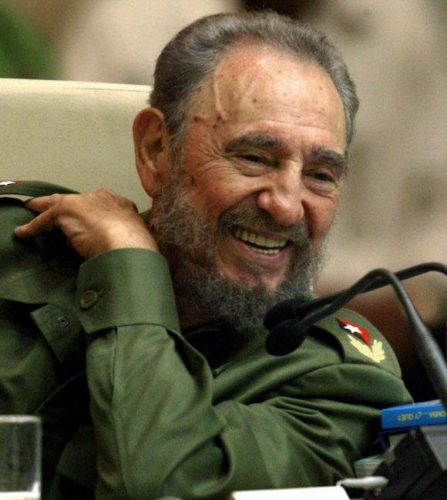
Fidel forever
Fidel Castro maintained a pragmatic and evolutionary stance on religion in Cuba: from the initial confrontation with the Catholic Church and the promotion of state atheism, to the openness to religious freedom and cooperation with religious institutions in the last stage of his leadership. He recognized the ethical and social coincidences between Christianity and socialism, defended freedom of belief as a fundamental human right and promoted the idea that Marxists and believers can unite in the struggle for social justice and human well-being. This dynamic reflects the complex interaction between the Cuban Revolution and religion, with a growing recognition of the spiritual role in society.
In 1959 the image of the Virgin of Charity of Copper was taken to Havana on the presidential plane. Fidel Castro, along with senior revolutionary leaders, attended the closing Mass of the National Catholic Congress at the then Civic Square (now Plaza de la Revolución), filled by almost a million people. Bohemian magazine described the event as the largest crowd ever to gather in Cuba. This event was one of the last major Catholic public demonstrations in the capital until Pope John Paul II's visit in 1998
The leader in 1960 defended the autonomy of the State against the Church, marking a turning point in the relations between the Revolution and the religious institution . During his first speech after the entry of the Revolution into Havana, a white dove settled on Fidel Castro's shoulder. The priests of the Cuban sanctity interpreted this fact as a sign of the Orishas, branding Fidel as the chosen one - and strengthening his symbolic bond with Afro-Cuban religious syncretism, very present in the capital.
In January 1998, Pope John Paul II visited Havana, celebrating a massive Mass in Revolution Square with Fidel Castro. This event marked the beginning of a new stage of dialogue and religious tolerance, with the restitution of Christmas as a national holiday and greater public visibility for the Church
In 2012, Pope Benedict XVI also visited the capital, consolidating the opening and dialogue between the Cuban State and the Catholic Church
In February 2016, Havana was the scene of the historic meeting between Pope Francis and Patriarch Kirill of the Russian Orthodox Church, the first of its kind. Fidel Castro stressed the importance of this event for world peace and religious ecumenism.
In various speeches and interviews, Fidel expressed from Havana his respect for the freedom of worship and the importance of religion as part of human rights, affirming: "It is a conquest of our homeland the principle of freedom of worship and respect for all religions, all beliefs, all ideas, all creeds.
Havana has been the scene of key moments in the relationship between Fidel Castro and religion: from great masses and religious demonstrations, through controversial speeches, to the opening to dialogue with leaders of the Catholic Church and other denominations. These events reflect the evolution of religious policy in Cuba and the central role of the capital as a space for encounter, confrontation and reconciliation between the Revolution and the faith.
